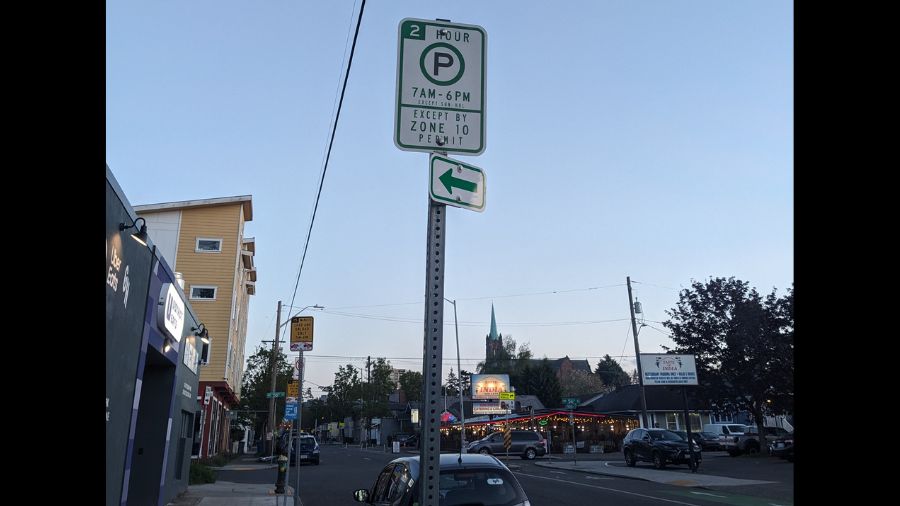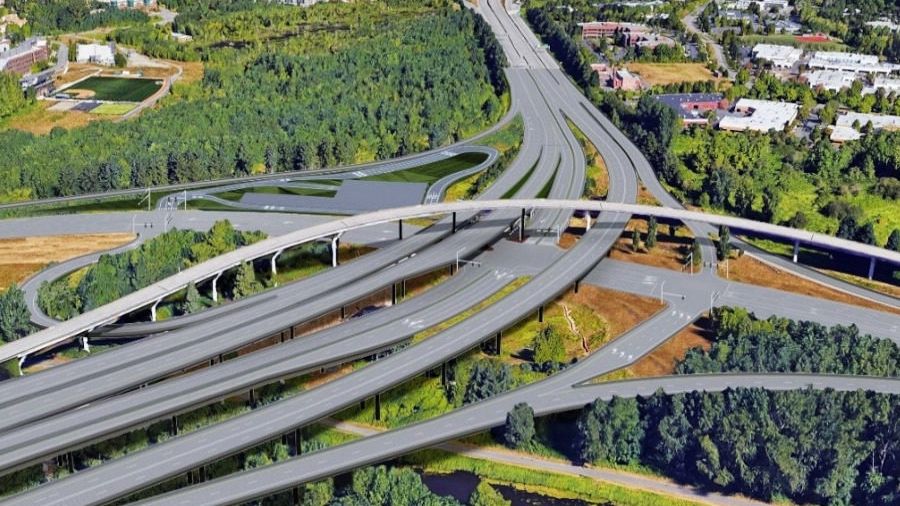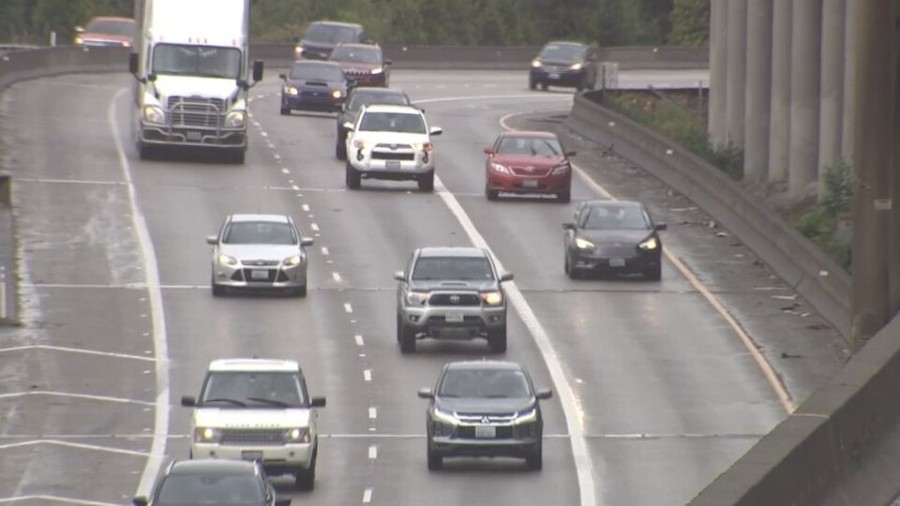State explores privacy issues, mileage tracking in road usage charge debate
Dec 16, 2021, 5:03 AM | Updated: 10:19 am

Cars heading in and out of Seattle on I-5. (Photo by Karen Ducey/Getty Images)
(Photo by Karen Ducey/Getty Images)
Would you be OK with your car’s maker tracking your mileage so the state could charge you for every mile you drive? It’s one of the ideas being considered as the state struggles to begin a road usage charge system.
Washington tolling revenue still reeling from pandemic
One of the biggest concerns over the pay-by-mile system or a road usage charge (RUC) is the way the state would collect the data and what kind of data would be included. People participating in the trial didn’t like plugging a GPS device into their car. They considered it too much private data to give up.
As technology changes, the Washington State Transportation Commission is exploring telematics, where your car sends the data to its manufacturer automatically, and the automaker sends it directly to the state. No GPS tracking, but a lot more potential personal information getting out. Things like where you go, where you eat and, of course, your driving habits.
Travis Dunn, with engineering and construction firm CDM Smith, updated the commission this week on that potential.
“New vehicles are all equipped with — certainly the data is collected on board — but now they’re equipped with the ability to transmit that data,” Dunn said. “Accessing it directly from the automakers is a way to, in the long term, reduce costs and also improve the user experience.”
To make sure he heard that correctly, commission member Jim Restucci asked for clarification.
“You’re talking about not plugging a device into the on-board diagnostic port and actually using the car itself to communicate the telematics details, correct?” he asked.
Dunn answered: “Correct.”
Now this is just something the commission is looking at. It did not test this idea during the pilot project, but the commission wants to make sure it is keeping up with the accelerating technology that could be used in a pay-by-mile tracking system.
Speaking of acceleration, the speed with which automakers are committing to electric cars and trucks has the commission concerned. EVs do not pay for the roads because they are not charged the gas tax. That’s why they want to switch to the RUC quickly so they can capture those dollars for our roads and transportation projects.
“We’ve been at this for 10 years, and the world has been shifting at an unprecedented pace, in terms of a transition and the motivation of the automakers,” WSTC Executive Director Reema Griffith said. “Just wondering, Travis, if we need to refresh our timeline?”
The commission is finalizing its pitch to the legislature, which it will deliver next month. It will once again be asking lawmakers to at least start the RUC program on a limited basis to get the ball rolling.
“Everything is indicating the nation is gearing up, and we need to pick up our pace as well,” Griffith said.
But there are significant roadblocks to transitioning to the RUC that go beyond EVs and data collection.
Dunn’s research showed lower income people will suffer more than others, the longer the gas tax is in use. People making under $30,000 a year pay up to 40% of their income toward transportation, with most of that coming from having a car and maintaining it.
Those with lower incomes likely drive older and less fuel-efficient cars. Dunn said they pay more per mile in gas taxes. If the state switches to pay by mile, everyone will pay the same rate, no matter what kind of car they drive.
“What this means is if you imagine hypothetically switching to a road usage charge across the board for all vehicles, the payments would be equalized,” he said. “It would be $240 across the board. The lower income households would save. The higher income households would pay more.”
That $240 represents the 2.4 cents per mile charge over an average 10,000 miles driven in a year.
So, add equity issues to the list of concerns with adopting the road usage charge, as well as privacy, and the increasing move to EVs.
You can see that there is a lot for lawmakers to address on this in the upcoming short session. Not sure it happens in 2022, despite the urgency from the transportation commission.
Check out more of Chris’ Chokepoints.













